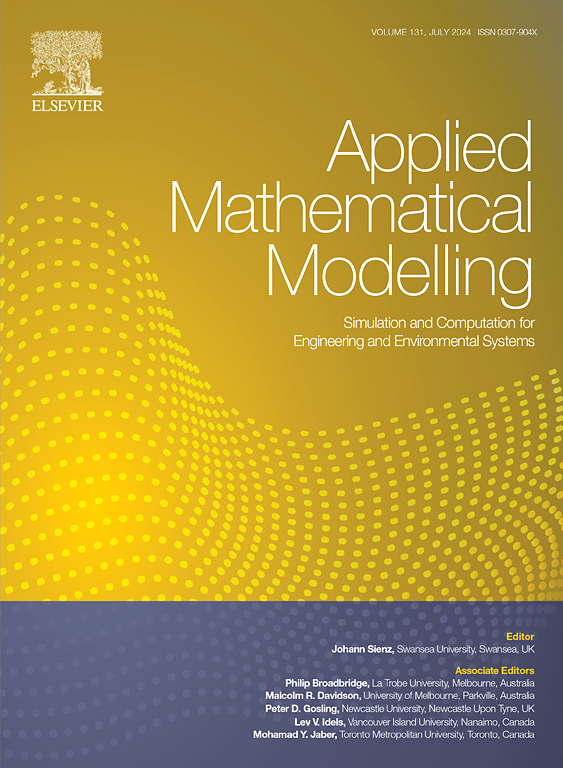负载不确定情况下电池储能系统运行的优化调度
IF 4.4
2区 工程技术
Q1 ENGINEERING, MULTIDISCIPLINARY
引用次数: 0
摘要
本文研究了考虑能源负荷不确定性的电池储能系统运行优化调度。我们开发了一种新颖的两阶段分布式稳健优化模型,以确定最佳电池使用计划,在考虑峰值负荷成本的情况下,使最坏情况下的能源成本最小化。该模型在构建模糊集时利用了基于深度学习的概率预测。具体来说,我们开发了一个深度自回归递归网络模型,用于生成一段时间内能源负荷的概率预测。然后,预测模型的输出被用于为分布稳健优化模型构建边际时刻模糊集。为了解决所提出的模型,我们建立了第二阶段最佳目标函数值的闭式表征。利用这一闭式表达并使用二阶圆锥对偶,我们推导出了问题的精确单级混合整数二阶圆锥重述。在真实数据集上进行的大量计算实验证明了我们提出的模型的价值和由此产生的电池计划的有效性。结果表明,所提出的模型优于多个基准,包括两阶段随机编程。此外,负荷预测的准确性对最优电池计划在消除峰值负荷方面的效果也有显著影响,最大能源负荷最多可减少 18%。本文章由计算机程序翻译,如有差异,请以英文原文为准。
Optimal scheduling of battery energy storage system operations under load uncertainty
This paper investigates the optimal scheduling of battery energy storage system operations considering energy load uncertainty. We develop a novel two-stage distributionally robust optimization model to determine an optimal battery usage schedule that minimizes the worst-case energy costs considering peak load costs. The model leverages deep-learning-based probabilistic forecasting in the construction of the ambiguity set. Specifically, we develop a Deep Autoregressive Recurrent Networks model to generate a probabilistic forecast of energy loads over a time horizon. The output of the forecasting model is then used to construct a marginal-moment ambiguity set for the distributionally robust optimization model. To solve the proposed model, we establish a closed-form characterization of the optimal second-stage objective function value. Leveraging this closed-form expression and using second-order conic duality, we derive an exact single-level mixed integer second-order conic reformulation of the problem. Extensive computational experiments, conducted on a real dataset, demonstrate the value of our proposed model and the effectiveness of the resulting battery schedule. The results show that the proposed model outperforms several benchmarks, including two-stage stochastic programming. Furthermore, the accuracy of the load forecast significantly impacts the effectiveness of the optimal battery schedule in eliminating peak loads by achieving up to 18% reduction in the maximum energy load.
求助全文
通过发布文献求助,成功后即可免费获取论文全文。
去求助
来源期刊

Applied Mathematical Modelling
数学-工程:综合
CiteScore
9.80
自引率
8.00%
发文量
508
审稿时长
43 days
期刊介绍:
Applied Mathematical Modelling focuses on research related to the mathematical modelling of engineering and environmental processes, manufacturing, and industrial systems. A significant emerging area of research activity involves multiphysics processes, and contributions in this area are particularly encouraged.
This influential publication covers a wide spectrum of subjects including heat transfer, fluid mechanics, CFD, and transport phenomena; solid mechanics and mechanics of metals; electromagnets and MHD; reliability modelling and system optimization; finite volume, finite element, and boundary element procedures; modelling of inventory, industrial, manufacturing and logistics systems for viable decision making; civil engineering systems and structures; mineral and energy resources; relevant software engineering issues associated with CAD and CAE; and materials and metallurgical engineering.
Applied Mathematical Modelling is primarily interested in papers developing increased insights into real-world problems through novel mathematical modelling, novel applications or a combination of these. Papers employing existing numerical techniques must demonstrate sufficient novelty in the solution of practical problems. Papers on fuzzy logic in decision-making or purely financial mathematics are normally not considered. Research on fractional differential equations, bifurcation, and numerical methods needs to include practical examples. Population dynamics must solve realistic scenarios. Papers in the area of logistics and business modelling should demonstrate meaningful managerial insight. Submissions with no real-world application will not be considered.
 求助内容:
求助内容: 应助结果提醒方式:
应助结果提醒方式:


